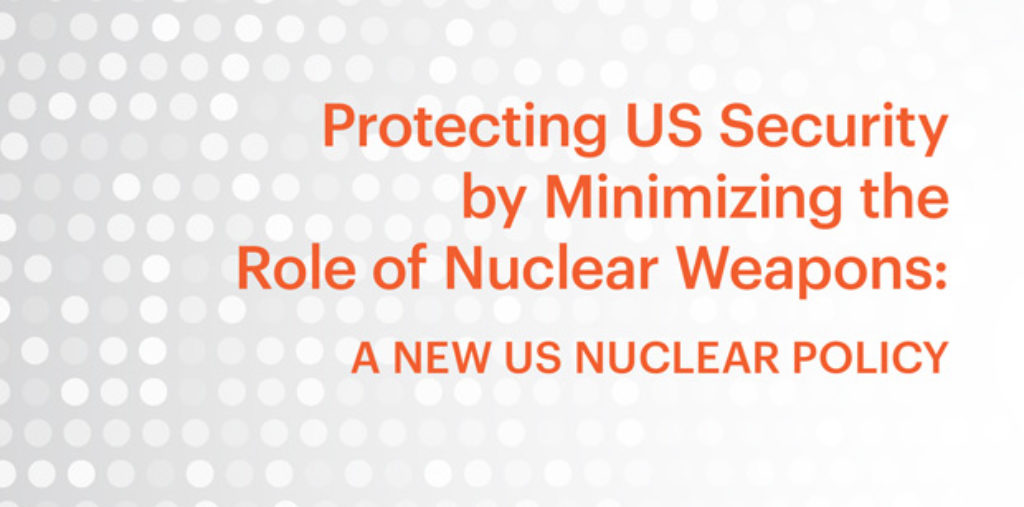A new report finds that the U.S. has mistakenly pursued a nuclear strategy that is costly and out of touch with 21st century security needs. The report titled, Protecting U.S. Security by Minimizing the Role of Nuclear Weapons: A New U.S. Nuclear Policy was released today by the nonpartisan Stimson Center and authored by Stimson Co-Founder Barry Blechman and Former Budgeting for Foreign Affairs and Defense Co-Director, Russell Rumbaugh. The findings come as Congress prepares to vote on spending billions of dollars to support costly nuclear weapons programs in the National Defense Authorization Act. “The overarching goal of U.S. nuclear policy and strategy should be to seek to minimize the roles played by these weapons, both in our own policies and in the policies of all other nations,” said Blechman. “After seventy years of indulging fantasies of what nuclear weapons can do, it is high time to acknowledge that they do very little and adapt U.S. nuclear policy, strategy, and forces to those facts.” Major report recommendations and findings include:
- Nuclear weapons do not achieve U.S. policy objectives, dominant conventional forces do.
- The primary objective of U.S. policy on nuclear weapons should be the establishment of a verifiable international regime eliminating nuclear weapons globally.
- In the 2020-2030 timeframe, the U.S. should reduce its arsenal to roughly 1,000 deployed nuclear warheads, as counted under the rules of the New Start agreement, or to the size of the largest nuclear arsenal in the world, whichever is smaller.
- While the U.S. should continue to invest in other technologies with potential strategic implications, such as cyber warfare, electronic warfare, and conventional global strike, these technologies do not supplant the need to maintain a nuclear deterrent as long as other states maintain nuclear arsenals.
Budgeting for Foreign Affairs and Defense Fellow Laicie Heeley noted, “Because the Pentagon cannot plan for every contingency, it must plan for the most conceivable future. In this case, that might mean a step back from nuclear weapons toward greater focus on those weapons we might actually use.” The Stimson Center is a nonprofit, nonpartisan institution devoted to enhancing international peace and security through a unique combination of rigorous analysis and outreach. Founded in 1989, Stimson is celebrating a quarter-century of building effective security solutions through pragmatic research and innovative analysis.
Follow Stimson’s Budgeting for Foreign Affairs and Defense and Stimson on Twitter.

